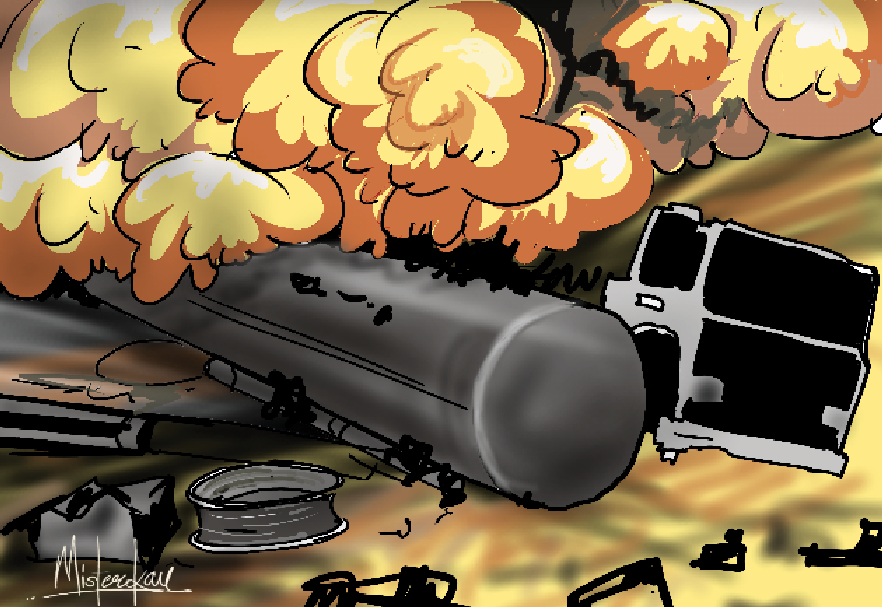Who would have thought that just ninety-five days after the devastating tanker explosion of October 15, 2024, which left the Majiya community in Jigawa State and the entire nation reeling with grief and despair, the nation would yet again witness another tragedy of similar scale in Niger State?
The recent tanker explosion in Dikko, Gurara local government area of Niger State, has left the country in shock. It is, undoubtedly, a shattering tragedy of a monumental proportion. Official reports put the death toll at 98, though the numbers could rise, as some of the injured may succumb to their first-degree injuries while others may fall victim to the aftereffects of the tragedy. My heart goes out to the bereaved families and those whose livelihoods have been destroyed by the raging inferno.
Sadly, each time a calamity of such magnitude hits the nation, we mourn briefly, only to move on as though nothing happened—until the next tragedy strikes.
Lessons Never Learned
The Niger tanker explosion underscores a bitter truth: as a nation, we fail to learn from past disasters. How else does one explain the fact that just three months after over a hundred people perished in Jigawa—many of whom had rushed to the scene of a tanker accident to scoop fuel—we are again mourning close to a hundred lives lost in similar circumstances?
In these avoidable tragedies, lives are cut short, dreams are shattered, and families are plunged into mourning, all because caution is repeatedly thrown to the wind. Accidents do happen, and sometimes, there is little or nothing we can do about them. The tanker driver losing control may be deemed an accident, and it will take a thorough investigation to determine where the real fault lies. However, the rush of people to scoop fuel despite the well-known risk of collateral damage borders on sheer greed and recklessness.
While the high cost of living and skyrocketing fuel prices—now over ₦1,000 per litre—might tempt some to take such risks, it cannot justify actions that amount to collective suicide. Even in the absence of an imminent explosion, where is our humanity when citizens rush to an accident scene not to safeguard but to loot?
Shockingly, barely three days after the Dikko incident, residents rushed to the scene of another tanker accident that occurred in Bida, Niger State, where a groundnut oil-laden tanker fell and was seen greedily scooping groundnut oil.
Moral Bankruptcy
This pervasive habit of rushing to scoop fuel at accident sites is a glaring reflection of our society’s moral decline and social decadence. It is unfathomable that in a country where over 80% of the population identifies as either Muslim or Christian—faiths that emphasise empathy, morality, and aiding those in distress—people would instead exploit such situations.
Clearly, religious leaders have a lot to do. They must rise to the occasion and provide the needed moral compass. Importantly, the National Orientation Agency must intensify efforts to sensitize citizens to the dangers of scooping fuel from a fallen tanker. If people learn not to be heard by such calls, the NOA cannot afford to relent in its efforts.
Query For Emergency Responders
But even as we agonise over this tragedy and the reprehensible attitude of some Nigerians who delight in rushing to accident scenes to steal from the victims, we must ask ourselves some fundamental questions, especially as they pertain to the state of our emergency responses. How promptly did the National Emergency Management Agency (NEMA), the Niger State Emergency Management Agency (NSEMA), the Fire Service and other responders arrive at the scene?
I can guess and, for sure, won’t be far off the mark. They arrived at the scene late. The delays are often predictable, given the state of our emergency services. The state Fire Service couldn’t arrive at the scene at a good enough time because it is short on either staff or resources, if not both. Most state governments don’t accord priority attention to the Fire Service. The fact is that fire services in most states are underfunded, understaffed, and poorly equipped. Budget allocations to these agencies are often meagre, and even then, actual disbursements fall short.
Deplorable Roads
Equally troubling is the state of our road infrastructure. What does it take to provide a near-lasting solution to the deplorable state of our roads so the nation can, in so doing, contribute to reducing the rate of accidents and the attendant loss of lives? Why, despite years of lamentation, do we still grapple with deplorable roads? Why is road transportation the primary means of fuel distribution across the country?
Minister of Works David Umahi recently stated that ₦18 trillion is needed to address Nigeria’s road infrastructure challenges. While this figure might seem daunting, it reflects more on government priorities than resource availability. How does one justify spending ₦25 billion on the Vice President’s residence, ₦7 billion on renovations for the President and Vice President’s Lagos residences, and ₦75 billion on SUVs for lawmakers while our roads remain death traps?
Umahi’s estimate also raises questions. As a satirical column in this newspaper recently queried, does the figure include or exclude kickbacks?
Moving Forward
While Nigerians ponder the humongous amount Umahi said is needed to address road infrastructure, citizens must demand concerted government efforts to rehabilitate the nation’s deplorable roads and ensure emergency agencies are fully equipped and always placed on alert. Above all, the government needs to do all it takes to ensure that most sections of the nation can also be accessed through rail, which has been described as one of the most efficient and cost-effective means of transporting people and goods.
Above all, the recurring tanker explosions demand a thorough investigation. The Majiya tragedy came and went without a proper probe. Now, we face the Dikko incident. Will the government mourn and move on again? Or will there be a genuine effort to understand and prevent these tragedies?
